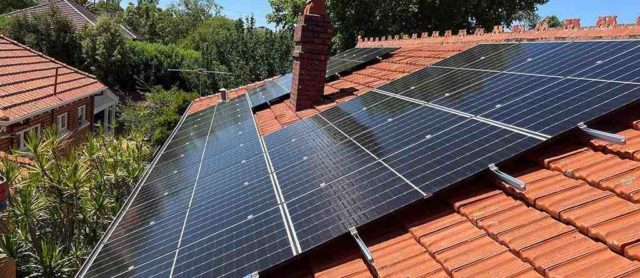Solar energy harnesses the sun’s rays to produce electricity. It is a clean, renewable and sustainable energy resource.
Unlike coal and oil, it doesn’t cause air pollution or greenhouse gases. However, its mining and manufacturing do have some environmental impacts.
Investing in solar power can reduce homeowners’ dependence on the grid and help them save money. They can also sell their excess energy back to their local utility companies.
1. It’s Clean
Solar energy is an inexhaustible, clean, and renewable source of power. It creates no carbon emissions or other heat-trapping “greenhouse” gases, and it avoids the environmental damage caused by mining and drilling for fossil fuels.
It also uses little to no water, unlike power plants that generate electricity using steam turbines. Moreover, it doesn’t produce noise pollution, and it allows homeowners to sell their extra energy back to the grid.
The sun releases enough energy on Earth each second to meet the world’s total energy demand for over two hours. And even though solar energy may not be available everywhere, it is an ideal solution for those seeking a way to reduce their utility costs and build a more sustainable future. Solar energy also contributes to better general air quality by reducing greenhouse gas emissions and the need for fossil fuels.
2. It’s Affordable
Thanks to technology advances and government incentives, solar energy is more affordable than ever. Depending on how you finance or purchase your system, you could recoup the cost of your investment within 7-10 years. This is especially true considering electricity prices have been on the rise over the past decade. With new storage solutions, solar energy may even be competitive with other renewable options in certain markets.
Solar power doesn’t just offer affordability at the national level; it also brings security and independence to individual homes, too. It’s not dependent on the national grid, meaning you can produce your own energy and use it at home without sacrificing access to power after dark or during severe weather events (like heat waves or droughts). Annual energy costs can be thousands of dollars, but solar reduces those costs and offers long-term savings.
3. It’s Reliable
The sun is a powerful energy source that provides endless opportunities for our planet. It is the only energy resource that is unlimited and completely sustainable.
Solar energy is produced using a variety of technologies. These include photovoltaic solar power, solar thermal energy, and concentrated solar power. Photovoltaic solar panels convert sunlight into electricity, while solar thermal systems capture the Sun’s heat to generate hot water or steam for use in heating buildings and in power generation. Concentrated solar power uses lenses or mirrors and tracking systems to focus the Sun’s heat on a working fluid to generate electricity.
Solar energy is also incredibly durable and reliable. It is highly flexible and can be used on a hyperlocal level, including by households through solar energy installations and energy storage. This allows consumers to bypass rising utility prices and even earn money by selling excess power back into the grid. In addition, many solar energy systems are eligible for state and federal tax credits.
4. It’s Sustainable
Solar energy is a sustainable, renewable resource that can help to reduce our carbon footprint and provide a reliable, long-term source of power. Solar technology can also create new jobs when deployed on a large scale in the form of solar farms.
In just one hour, enough sunlight reaches Earth to meet our entire world’s electricity needs for an entire year. This abundant solar resource has the potential to significantly lower energy prices and decrease long-term energy costs while reducing greenhouse gas emissions.
Additionally, unlike fossil fuels, solar energy does not release harmful pollutants into the environment or contaminate water sources. The energy generated by solar systems is also quieter than other forms of energy, which can prevent noise pollution and protect human health. This technology can also help to counteract the “urban heat island effect” caused by asphalt, tall buildings and high populations that cause city centers to be consistently warmer than their surrounding areas.

